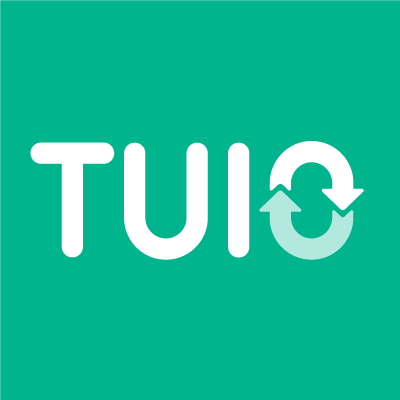In a survey administered to the National Panel of New Principals, 59% cited time management as the most challenging aspect of the job.
If you’re a school leader—whether new to the job or a seasoned professional—you can certainly relate.
Running a school consists of many tasks, and each of them takes time.
How can you get it all done without camping out at the office?
What are some practical ways to improve your time management in a leadership role and boost your productivity?
11 Essential Tips for School Leadership Time Management
Put the eleven essential tips for time management for principals below into practice, and you’ll feel much more productive and much less stressed.
1. Be reasonable
The first step in improving time management for school leaders is to be reasonable about what can be accomplished in a day. Starting the day with an impossibly huge task list will only lead to stress, frustration, and lack of focus.
As a principal, your day is filled with both expected responsibilities and unexpected challenges. The 1-3-5 rule is commonly used for improving time management in schools. However, it’s essential to tailor it to the unique demands of running a school.
Each day, narrow your to-do list down to one big task, three medium tasks, and five small tasks.
For example, your one big task might be leading a strategic meeting or addressing a significant budget issue. Medium tasks could include parent communications, staff evaluations, or preparing for an upcoming school event. Small tasks might involve quick email responses, brief check-ins with teachers, or reviewing daily reports.
Because your day is often unpredictable, leave one medium task and 1-2 small tasks blank to account for last-minute issues that may arise, such as unexpected meetings or urgent student matters.
If you find that you can handle more tasks in a day, feel free to adapt the rule, but always be realistic in the expectations you set for yourself. By focusing on what matters and allowing flexibility for the unexpected, you’ll be more productive and less stressed.
2. Set priorities
When you’re staring at a huge task list for the week, month, or even semester, prioritization is key. As a principal, it’s crucial to prioritize tasks based on their impact on school operations.
Start by writing down all your tasks and setting deadlines for each one, even for non-urgent tasks. This ensures that nothing falls off your radar and keeps you on track for long-term projects, like preparing for inspections or organizing school events.
Reorganize your checklist according to deadline and importance. For example, tasks that directly affect the safety and functionality of the school, like addressing maintenance issues or ensuring compliance with regulations, should take precedence. As you accomplish a task, however small, check it off and enjoy the feeling of accomplishment.
Before you go to bed each night, set your most important priorities for the following day. This way, you can start the day with a clear focus, knowing exactly what needs to be done and why it matters. By consistently prioritizing your tasks, you’ll maintain control over your workload and ensure that the most critical aspects of school management are handled efficiently.
3. Break it into chunks
That feeling of accomplishment is vital to keep you motivated. When you have a giant task, break it into smaller chunks. If you’re organizing a school event, break it down into manageable tasks like booking the venue, sending invitations, and arranging catering.
Each “chunk” should take no more than 2-3 hours to accomplish. This keeps you focused on your goal and moving in the right direction. Setting realistic timeframes for each chunk also prevents you from feeling overwhelmed by the magnitude of the project.
By dividing a large project into smaller, achievable tasks, you’ll experience an encouraging sense of accomplishment and productivity throughout the project, rather than only at the end. This approach also helps in maintaining momentum and preventing burnout, ensuring that you stay on track and make consistent progress.
Don’t forget that celebrating the completion of each chunk can provide a motivational boost, making the entire process more enjoyable and less daunting.
4. Start with the most challenging task
We all tend to procrastinate on our most dreaded tasks. But when you have a task looming over you, you become unproductive in other areas.
As a principal, it’s especially important to tackle the most difficult school-related tasks first thing in the morning. Whether it’s resolving a conflict between staff members, addressing a major budget issue, or making a tough decision, starting your day with the hardest task can set a positive tone for the rest of the day.
“Slay your dragons.” Tackle your most difficult task first. The satisfaction and relief of checking a monster off your to-do list will carry you through the rest of the day. By getting the toughest task out of the way early, you’ll have more mental and emotional energy to handle the rest of your responsibilities, leading to a more productive and stress-free day.
This approach also helps you maintain focus and momentum throughout the day. Even the less important tasks are completed more efficiently.
5. Take breaks
This may seem counterintuitive, but taking breaks actually increases your productivity. Without breaks, mental and/or physical fatigue will start to impair your effectiveness. In a school setting, specific types of breaks can be particularly beneficial. They’re advantageous for your well-being and for staying connected to your school’s daily operations.
Take a walk around the school to stretch your legs and clear your mind. Use this time to have brief chats with students or teachers, which can also help you stay connected with the school community. This will refresh your mind while strengthening relationships with staff and students.
Another great way to take a break is by observing a class for a few minutes. This allows you to recharge while also gaining insights into the teaching and learning happening in your school.
Schedule small breaks (10-15 minutes) throughout your day. Go talk to some colleagues, walk around the block, or stretch. Avoid looking at your phone when you should be working by limiting unnecessary usage to your scheduled breaks.
After these breaks, you’ll return to work feeling refreshed and ready to go.
6. Delegate
Don’t be afraid to delegate work to others. Assign the biggest priorities and most essential tasks to yourself, then delegate the rest accordingly. Delegation encourages you to focus on strategic leadership while empowering others to take on responsibilities that contribute to the school’s success.
You might have administrative assistants handle routine communications or delegate the planning of school events to a team of teachers. When tasks are delegated to the right people, it not only lightens your load but also fosters a collaborative environment where staff members feel valued and trusted.
Hiring effective faculty and staff makes delegating an easier and less stressful process.
When possible, you can also delegate some tasks to technology. Set calendar reminders, automate emails, and use task management software and apps.
Effective delegation, both to your team and through technology, allows you to manage your time better and focus on what truly matters in your role as a school leader. TUIO helps you simplify billing and payments, freeing up your time for the rest.
7. Listen to podcasts
Maximize your commute to and from work by listening to informative and inspirational podcasts.
Educational and leadership podcasts are particularly relevant for school principals, offering new ideas, strategies, and motivation. By tuning in during your commute or free periods, you can make productive use of your time and gain valuable insights that can be applied to your daily work.
Don’t know what podcasts to tune into? Start with our list of five must-listen podcasts for administrators, such as Principal Center Radio for actionable strategies or Better Leaders Better Schools for leadership inspiration.
For more suggestions, check out the blog on the best podcasts for school administrators here: Best Podcasts for School Administrators.
8. Don’t get lost in the emails
Emails can be a major drain on your time, especially in a school environment where communication is constant. To manage your inbox more effectively, try implementing strategies like these:
- Set aside specific times each day to check email. This allows you to focus on other tasks without constant interruptions.
- Use tools like Inbox Pause to slow the flow of emails until you’re ready for them.
- If an email will take three minutes or less to answer, do it now. If it will take longer, set it aside for one of your scheduled email times.
- Find yourself sending the same message over and over? Save some of your most frequently sent emails, then just copy and paste to respond to similar queries.
- Set up automatic filters to sort your emails into easy-to-manage folders.
- When possible, answer with statements instead of questions to avoid a lengthy back-and-forth
- Unsubscribe from newsletters or promotional emails that aren’t relevant to your role to keep your inbox clean.
- Turn off email notifications during focused work periods to avoid constant distractions
- Prioritize emails by marking them as “urgent,” “to-do,” or “informational,” so you can easily identify what needs immediate attention.
These strategies for time management in school leadership can prevent your inbox from overwhelming your day and ensure that your time is spent on more important tasks.
9. Make a plan to fight distraction
What tends to get you the most distracted during the day? Identify your biggest time-wasters, then come up with a plan to deal with them.
In today’s fast-paced educational environment, school leaders are constantly bombarded with information from various sources—emails, social media, blogs, and new educational trends. This constant influx can be both exhilarating and overwhelming, leading to fractured attention and diminished focus.
Use the formula “If ________, then __________.” For instance, “If I get distracted by my phone, I will turn off all alerts and/or put it in a desk drawer until I take a break.”
Additionally, slow down and create intentional spaces in your day to think deeply and focus on what truly matters.
Consider setting boundaries around your time by shutting down email and chat notifications during critical work periods. This strategy not only helps you manage distractions but also allows you to prioritize depth over novelty, ensuring that you give your full attention to the most important tasks.
Being prepared with an effective strategy will help you avoid the distraction trap.
10. Know your productive times
Are you most productive in the morning? Just after lunch? Tackle your most challenging tasks at your most productive time of the day. Understanding your personal energy cycles can greatly improve your overall effectiveness.
As a school leader, it’s essential to recognize when your energy and focus are at their peak and align your schedule accordingly.
For example, use your most productive hours for tasks that require deep concentration, such as strategic planning, critical meetings, or decision-making. This ensures that your most demanding responsibilities are handled with clarity and focus.
Schedule quick, simple tasks for the part of your day that drags, like the last hour or so before heading home. Consider using this time for tasks like responding to emails, organizing your workspace, or following up on smaller administrative duties.
By being mindful of your natural productivity rhythms, you can maximize your efficiency and ensure that your most important work is done when you’re at your best. This strategy helps you maintain balance and prevents burnout by aligning your tasks with your energy levels throughout the day.
11. Practice self-care
Taking good care of yourself makes it easier to stay focused, productive, and positive.
Get plenty of rest, eat healthy and balanced meals, and make time to exercise.
Beyond these basics, make time for hobbies, relaxation, and spending time with loved ones. Engaging in activities that bring you joy and relaxation helps you recharge and maintain a positive outlook. The responsibilities of managing a school can be overwhelming, and without proper self-care, burnout becomes a real risk.
Don’t get so caught up in school that you neglect people or hobbies you enjoy. Prioritizing self-care isn’t selfish. It’s essential for maintaining the energy and resilience needed to tackle your daily challenges.
Remember that taking time for yourself isn’t just beneficial for you. It also enhances your ability to lead effectively. The more you create time for activities that leave you rejuvenated and refreshed, the better you can serve your faculty, students, and families.
Final Thoughts: Time Management Tips for School Leaders
By following these tips for superior time management for principals, you’ll have more energy and focus, less stress, and your most productive days yet.

















